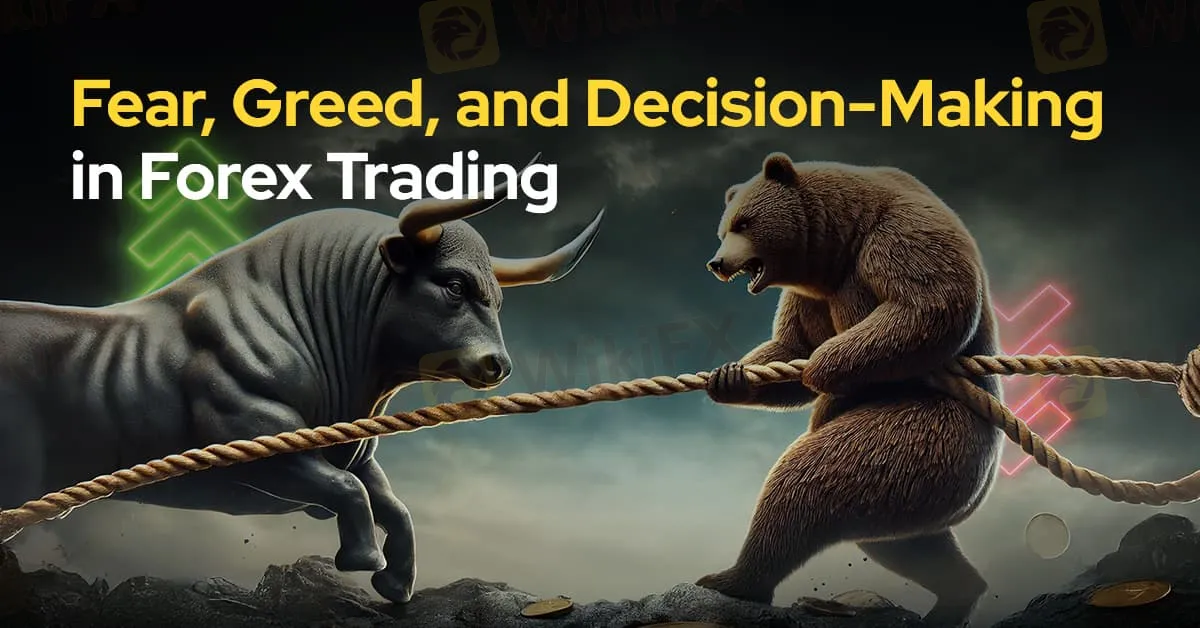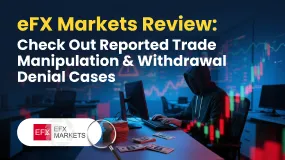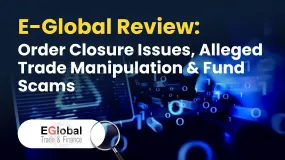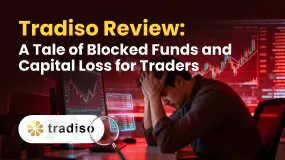Abstract:This article explores how fear and greed manifest in forex trading, how they impact decision-making, and the strategies traders can adopt to mitigate their effects.

The forex market, known for its volatility and high potential returns, is as much a psychological challenge as it is a financial one. Among the myriad of factors affecting trading decisions, two human emotions—fear and greed—stand out as particularly influential. Understanding the effects of these emotions can improve decision-making skills, leading to more rational trading strategies and improved outcomes. This article explores how fear and greed manifest in forex trading, how they impact decision-making, and the strategies traders can adopt to mitigate their effects.
The Role of Fear in Forex Trading
Fear is a natural response to potential loss, and in forex trading, it often leads traders to act conservatively, focusing on the risks rather than the potential rewards. While a healthy level of fear can prevent reckless decisions, excessive fear can lead to missed opportunities and suboptimal trading strategies.
Fear of Losing Capital: Many traders fear losses so intensely that they close positions prematurely to lock in minimal profits or prevent further losses. This reaction, while sometimes justified, can also mean exiting before a profitable trend fully develops.
Fear of Missing Out (FOMO): Fear isn‘t always about losing—it can also relate to the anxiety of missing potential gains. When traders see a currency pair trending strongly, they may feel compelled to jump in, fearing they’ll miss out on significant gains. This impulsive behavior often leads to chasing trades without proper analysis, ultimately risking losses.
Paralysis by Analysis: Fear can also cause traders to overanalyze the market, leading to hesitation and missed opportunities. Instead of making timely decisions, they get bogged down by conflicting information and fail to act, missing advantageous trades.
The Impact of Greed on Trading Decisions
Greed, the desire for excessive gain, is a double-edged sword in forex trading. When unchecked, it can lead traders to overlook risks, chase high rewards, and make overconfident decisions that are often detrimental to long-term success.
Holding Positions Too Long: Greedy traders often hold on to positions in the hope that prices will continue to move in their favor indefinitely. This approach can lead to significant losses if the market reverses unexpectedly, erasing potential profits.
Overleveraging: Greed frequently leads to overleveraging, where traders open larger positions than their capital can safely support. Although overleveraging amplifies potential gains, it also increases the risk of substantial losses, particularly in volatile forex markets.
Overtrading: Greed often pushes traders to make frequent trades, believing that each one will yield profits. This approach can lead to trading fatigue, poor decision-making, and high transaction costs that erode profits.
How Fear and Greed Impact Decision-Making
Both fear and greed disrupt the careful analysis and rational thinking required for successful forex trading. Fear often leads to risk aversion, while greed creates a tendency toward excessive risk-taking. Together, these emotions can lead to inconsistent trading decisions, where traders swing between overly cautious and overly aggressive strategies.
Example of Fear and Greed in Action: Suppose a trader is in a profitable position. Fear might compel them to exit early to “protect” profits, but if the trade continues in their favor, they may re-enter out of greed, expecting further gains. This cycle of exiting and re-entering based on emotional responses can quickly drain capital.
Strategies for Managing Fear and Greed
Recognizing and managing emotions is essential to developing a successful trading mindset. Here are some strategies that can help traders minimize the impact of fear and greed on decision-making:
Develop a Clear Trading Plan: A trading plan with defined entry and exit criteria, risk management rules, and realistic profit targets can keep emotional impulses in check. When each trade is guided by a plan rather than emotion, traders are less likely to act irrationally.
Set Realistic Goals and Accept Losses: Unrealistic expectations often fuel greed, as traders chase unattainable profits. By setting achievable goals and accepting that losses are part of trading, traders can mitigate the impact of greed and make more balanced decisions.
Use Risk Management Techniques: Techniques like stop-loss orders and position sizing can limit potential losses, reducing fear. By defining how much they‘re willing to lose on a trade, traders can enter positions with more confidence, reducing fear’s influence.
Regularly Evaluate Performance and Emotions: A trading journal helps traders track decisions and emotions in real-time. By reviewing past trades and analyzing how emotions influenced them, traders can identify patterns and work on minimizing emotional biases.
Take Breaks and Avoid Overtrading: Market conditions can sometimes be turbulent, leading to heightened emotions. Taking breaks between trades and avoiding overtrading can help clear the mind, reduce stress, and prevent impulse-driven decisions.
Conclusion
In forex trading, the line between success and failure is often influenced by the ability to manage emotions, especially fear and greed. Traders who recognize the effects of these emotions and adopt strategies to mitigate them are better equipped to make rational, consistent, and profitable decisions. As trading is an evolving journey, ongoing self-awareness and discipline are crucial to overcoming these psychological hurdles and achieving long-term success in the forex market.










